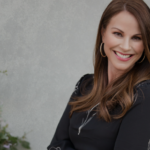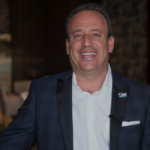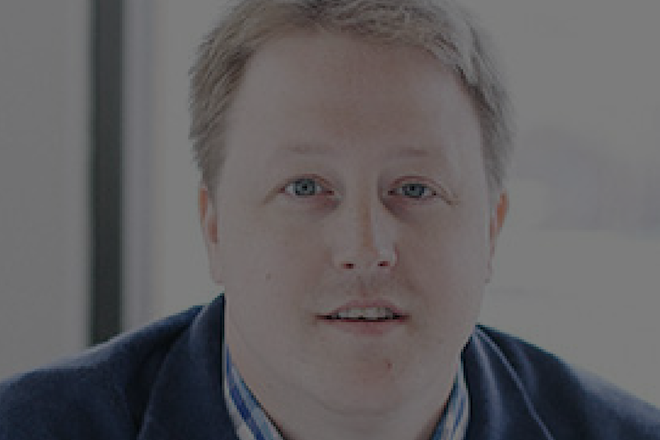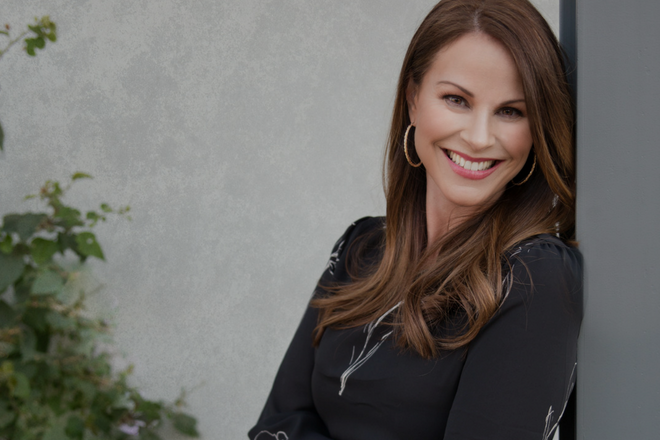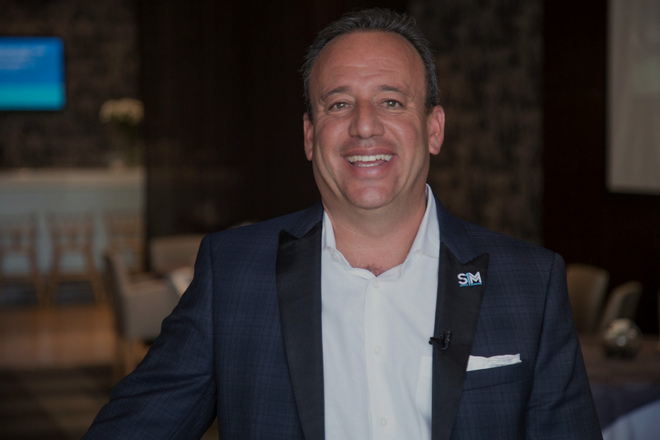“So what we’re doing is, when you make something really transparent, that has a lot of data points, then you need to make sure that you can explain all of those in a way that people understand..”
Brad Walker – CEO & Co-Founder of Income&; Transparency & diversity in investing; Technology apps; Entrepreneurs and investing.
Segment 1: (Length :04:00) – General Updates; Introduction to Brad Walker and his journey as an entrepreneur; The state of investments in the U.S.; Retirees not as prepared; Democratization of assets; Diversification in investing.
Brad’s finer points:
“Yeah, I think a lot of people would not consider fixed income investing to be sexy. But we have a big problem in this country. Since the financial crisis, interest rates have been at historical lows. And so you have a lot of people who are trying to invest in bonds and other fixed income instruments, but they’re not finding the yields that they need.”
Really what led us to try to address this problem, is we're about to be in big trouble. We have our parents, the baby boomer generation, who is moving towards retirement. Some are already in retirement. This is gonna be the biggest retiree population the country has every seen.
“And that population … Retirees typically depend on fixed income so that they could live comfortable in retirement. And so it’s kind of a perfect storm. You’re gonna have the biggest population in retirement, and the lowest yield.”
“So how do you reconcile that? How do you help solve that problem so that you can allow people to invest in something that’s safe enough to fit their kind of risk tolerance? But also allow them to live off their portfolio.”
“So definitely a very real problem. Maybe not the sexiest problem, but for sure, a very interesting one”
“Yeah, so what we’re trying to do is create a product, and we have, that brings the retail market into mortgage based investing. Right? So that sounds really scary, because as you talked about earlier, 2008, 2009, that was a big problem.”
The issue that I think we're solving is that, historically, residential mortgage debt has made for really good investment if it's treated responsibly. And that's really the key word. I think what we saw is what happens when it's not.
“And so what we’re doing is, taking every mortgage that we have, and we turn it into something that we call a PRIMO. And so, that gives people a full transparency into the underlying borrower credit. You know all the credit statistics, the geography, etc.”
“So people can interact with this however they want, they’re fully informed. So they could buy across everything on our platform, where they can still see all those underlying details, or if you have preferences, you can build something that fits specifically to your return or risk need.”
And so the idea is to take what was essentially an institutional product, or a product just for the ultra wealthy, and bring it to every day people. I think, largely, what we're taking part in here is the mass democratization of asset classes. And that's really exciting.
Segment 2: (Length :08:00) – Talking with Brad Walker; Entrepreneurs and investing; the future of Millennials and investing.
Brad’s finer points:
so our business is largely pointed at an older cohort. But this is a very important question, and I think it's one where we're seeing he impacts of the lack of planning in this country. And people are worried about that. I mean if you look at retirement savings across the board, it's really kind of scary that people aren't preparing for this.
“And as an entrepreneur, you’re obviously comfortable with the risk-reward scenario that you’re going after. Right? I think we’re all doing this because we believe there’s potentially financial independence afterwards. And we get to do cool things and actually build and create what we came up with. I think this is a question … This is pointed at millennials, of which I am one.”
“I think we just need to be smart about it and really plan for the future. Because during entrepreneurship, there is a fairly small amount of chance that you’re gonna gain financial independence right away, from whatever you’re working on right now.”
“And just open an IRA. If you’re not working for a corporation that provides a 401(k) or a pension. Just start socking away a little bit all of the time. Because I think as entrepreneurs know, things don’t always go as planned. And having a little bit of a realistic backup plan is probably not a bad idea..”
So largely, we're not marketing and messaging toward millennials specifically. I mean we really are, I think, one of the few FinTech companies that are going after the baby boomers. We're going after the millennials' parents. We're an accredited asset, so we're not available to everyone right now. Shortly we hope to be available to everyone.
“But really, I think from a millennials standpoint, what’s really exciting to me as someone who’s been in the financial services industry now for my entire career, is when I started, you pretty much had access to whatever you could get on your online broker dealer.”
“Or whatever your financial advisor would recommend for you. But what we’re seeing right now, is people leveraging technology to bring all kinds of new asset classes and opportunities, to people that never had access before. And that can be scary, because it does require you to educate yourself.”
“But there is a lot more interesting opportunities out there now. And I think as millennials, we’re okay doing research and we’re definitely okay doing things online. And if you’re willing to educate yourself, there’s a lot of really cool stuff out there, from equity crowd funding, to what’s happening in the fixed income market with companies like us.”
“And that’s only gonna expand. This is really, just in my mind, the beginning of this trend. So the opportunities are just popping up all of the time, and I think it’s a great time for millennials to start educating themselves so they can take advantage of it.”
Segment 3: (Length :10:00) – Getting educated on investing; Getting started early; Transparency in investing; Technology apps.
Brad’s finer points:
“You know, apps like Acorn and some of the other robo-advisory products, are a really good way to start. It’s a way to get comfortable. You can find anything you want now on the Internet with pretty good information to educate yourself.”
“Starting easy – some of those apps really make it so that you can get in, you don’t have to be sophisticated, it’ll get you comfortable with what you’re doing. And then I think as the interest level grows, there’s any number of other avenues you can go learn.”
And I think what's really interesting with the technology and the transparency that's coming out, education is the key to that. And a lot of the new companies in our space are really committed to doing that.
“We’re taking what was largely a fairly complex decision, and using really good data and UX, to simplify that. So that regardless of your level of sophistication, we can get people to a point where they understand and are comfortable.”
“And I think that’s just gonna get better and better over time. But I would say if you’re not that sophisticated an investor and you don’t know a lot, make sure you try to educate yourself. Everything I’ve read says get started as early as you can. You’re more disadvantaged the longer that you wait.”
“And yeah, I mean some of those robo-advisory platforms, those apps like Acorn, are a great way to do that. Or even common things like Digit, that may just help you save a little bit of money right now. There are companies for you kind of wherever you are in that spectrum. If you’re just getting started and need to kinda save a little bit, or you’re really looking at investing and then as you get into more interesting asset classes.”
So what we're doing is, when you make something really transparent, that has a lot of data points, then you need to make sure that you can explain all of those in a way that people understand.
“And so what we’ve done is really try to break things down, so people can see kind of the very important statistics, if you’re at any of our products, our PRIMOs. But then you can dig into the details, really as deep as you want to go, and we really try to create common language explanations of what those are and why they’re important.”
“And so you know this is obviously early days and we learn new things from our clients all the time. And then we try to bring those in and put those either in the explanation part of the site, behind login when you’re purchasing. Or really bring that messaging kind of up to the front, to the public side for people who are starting to look at this.”
“But I think the education is crucial to us because, and probably a lot of other platforms that are bringing new types of asset opportunities to retail investors.”
“Because you’re bringing it to a market that just has never seen this before. And so the hurdle to entry, the barrier to entry is, how do you get people comfortable with that? And then how do you make your UX usable enough that you can do that in a few clicks?”
When you go down this path of saying, okay we're gonna build a FinTech company, and we're actually gonna sell completely online to retirees. It's really funny, one of the first things we heard is, that market doesn't use technology to interact with their investments. And that really has not been proven to be true at all. Regardless, whether you have a brokerage account, most people are doing that stuff online already.
“As far as people coming in to use our platform, I think we’ve seen a groundswell with other successful companies in this space, and largely a lot of these people have played around on those platforms as well. And invested on those platforms and so a lot of the barriers are really gone. Particularly when you’re talking about the 50+ age group. There is not an unwillingness to use technology to interact with the product.”
“But then largely, even after this, there is only some part of the population that’s gonna be comfortable making these decisions for themselves. I think the other part of education that needs to kind of grow out of this, with all of these new asset classes, is really the advice network.”
“And on these new asset classes, I think you know, to really capture that next segment of the market that likes to work with somebody that they trust, that they believe is more knowledgeable. You know I think what we’re gonna see is more and more advisory capacity starting to cover this space as well.”
I think where our advantage is, again, we're very transparent. Whether that's fees or what the product is, and that has not always been the case with most investment products. And I think that's one of the really powerful things of technology. It's not just democratization, but it's really the ... We can take something and just shine a bright light on it. There is complete transparency and there is no reason not to be anymore.
Segment 4: (Length :03:00) – Hustler Thought of the Day:
Focus on providing client education helps create sustainable business models. - Brad Walker
GENERAL NOTES:
Brad Walker – CEO & Co-Founder of Income&
- Brad Walker is co-founder and CEO at Income&, the company behind the PRIMO, a low-risk, high-yield, fixed-income product backed by hard assets. PRIMOs offer low risk, seek yields of 6% or better, and have a high level of transparency and unprecedented customization.
-
Founded in 2014, Income& is the San Francisco-based financial technology company that pioneered the PRIMO in response to America’s demand for a better fixed-income investment option.
- Built with a team of seasoned executives from some of the most innovative and successful firms in the world, Income& is revolutionizing the fixed-income marketplace.
- Before founding Income&, Walker was director of institutional products and strategy for PENSCO Trust Company, an alternative asset custodian with over $10 billion in custodial assets. As director, Walker developed PENSCO’s long-term institutional strategy and established himself as a thought leader on emerging financial technologies.
- Before joining PENSCO, Walker was a research associate at Fisher Investments, a money management firm. Walker graduated from Drake University with a BS in Business Administration.
###
